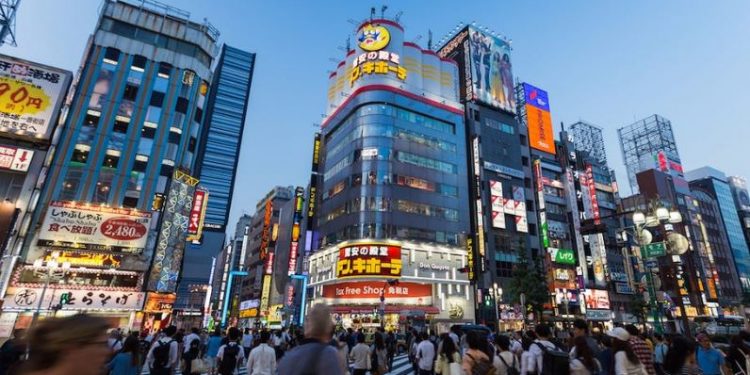Tokyo: Japan’s economy grew at an annual pace of 1.6 per cent in the quarter through March as private demand rebounded after COVID-19-related restrictions were eased, according to data released on Wednesday.
Real gross domestic product, which measures the sum value of a nation’s products and services, grew 0.4 per cent in January-March on-quarter in the world’s third largest economy, the government Cabinet Office said.
That was the strongest GDP growth pace since April-June 2022 marked a 1.1 per cent growth. It was also better than the market consensus forecast of 0.2 per cent.
The annualised pace shows what the growth would have been if what was marked during the quarter had continued for a year.
The biggest contributor to growth was private demand, surging an annual 3.1 per cent, with consumer spending and private investment showing a healthy rebound. The recent opening of borders to tourists and other incoming travel has also helped consumption perk up. Public demand grew at an annualised 1.8 per cent.
“Japan’s economy appears to be on a gradual recovery track despite sluggish global demand,” said Robert Carnell, regional head of research Asia-Pacific at ING.
Some analysts think such signs of recovery will prompt Japan’s central bank to take action on a policy change and move toward higher interest rates. The Bank of Japan policy board meets next month.
On the negatives, slowing exports dragged on growth, reflecting lagging global economies. Japan’s January-March exports dropped an annualised 15.6 per cent.
While much of the world, including the US and Europe, has been focused on inflationary pressures, Japan has been more cautious about its approach to inflation because it’s been hit by decades of the opposite problem: deflation, when prices spiral down.
Electricity bills were raised across the nation recently. Although that doesn’t directly affect core inflation, the move is likely to have some trickle-down impact to boost inflation, analysts say.
The relatively positive read for the Japanese economy may even work toward supporting Prime Minister Fumio Kishida’s standings with the public, which has had its ups and downs. Speculation is simmering that Kishida may call a snap parliamentary election later this year.
Kishida’s ruling Liberal Democratic Party has ruled Japan almost continually since the end of World War II. In recent years, it has faced few serious challenges because of a splintered opposition.
AP






































